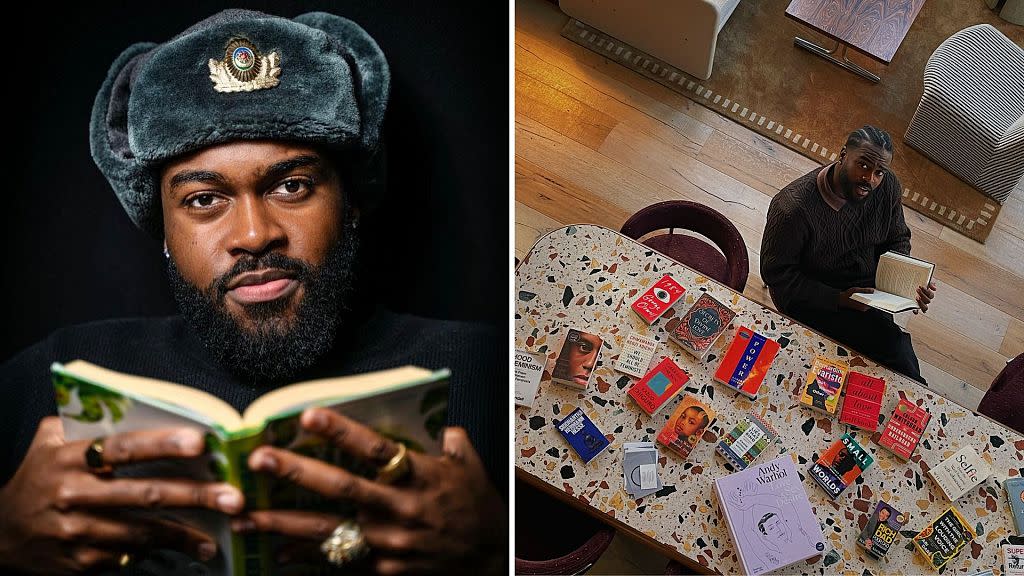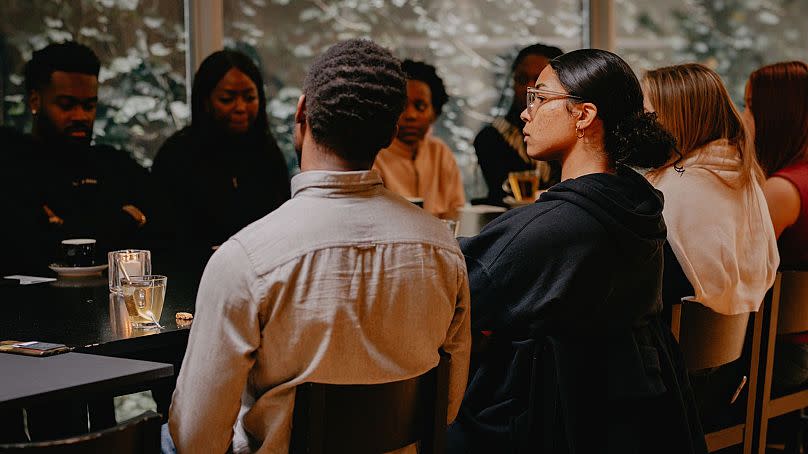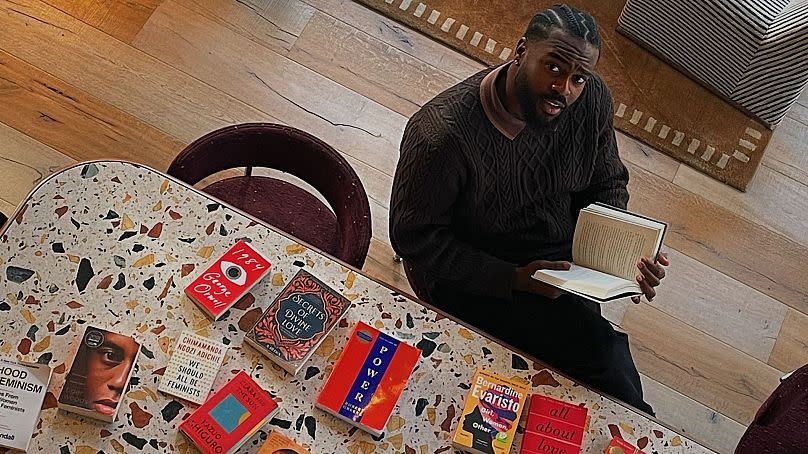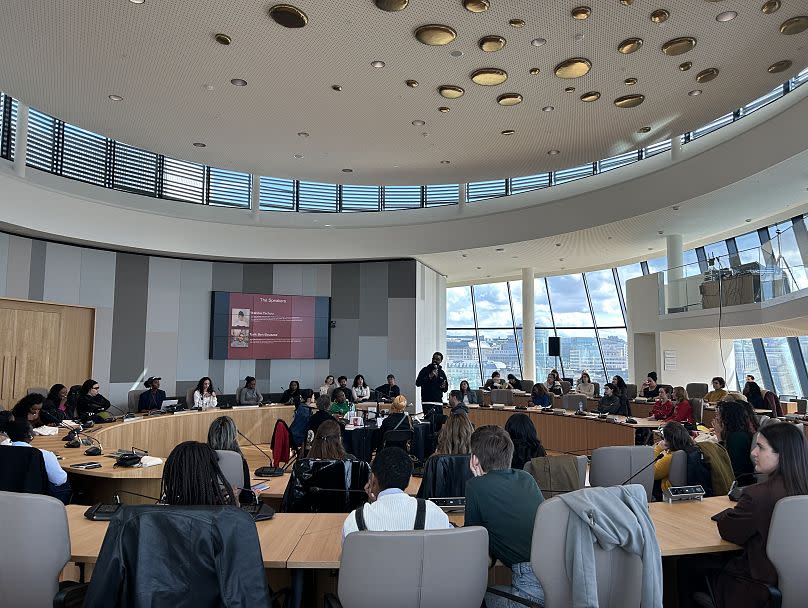A reverse book club in Brussels has guests sharing from the soul

Tino Chibebe, an author and entrepreneurship advisor based in Brussels, remembers attending the first ever session of The Book Club. He had just finished reading ‘Americanah’ by Chimamanda Ngozi Adichie and was eager to hear what other readers had thought.
But Chibebe didn’t know this was not a classic book club. It welcomed attendees who hadn’t read the novel in question, instead extracting paragraphs to use as a starting point for an in-depth discussion.
“We explored themes of being in the diaspora, love, blackness,” Chibebe said. “It was a really intimate setting and a good discussion.” By facilitating discussions through which all participants start off on equal footing, the concept aims to empower marginalised voices.
Reverse course

In classic book clubs “you have to read at the same pace as everyone else, and if you didn’t read past chapter three you can’t really participate in the discussion,” said Kriticos Mwansa, creator of The Book Club. “I hate that feeling.” Following the sessions, many participants often come away wanting to read the works discussed, he explained, which makes it more of a “reverse book club.” And while there is no membership involved, many attendees do return, “creating a community,” Mwansa said.
Since 2019, when this session took place, The Book Club has grown into a business with an ever-expanding roster of collaborators. Monthly sessions now take place in Berlin, Amsterdam and Brussels, on themes such as love, death, passion and more. Upcoming sessions will focus around the novel ‘Norwegian Wood’ by Japanese author Haruki Murakami, “Shoe Dog,” by Nike founder Phil Knight, and the self-help opus “The Body Keeps the Score,” for a string of sessions on body image and the importance of self-care in a demanding world.
“Usually when I'm reading a book, I see a quote, and I start wondering what other people would think about that,” Mwansa said. “I underline them, and then when I have enough I think okay, this is really something we could talk about.”
Public projects, private passions

What started as a passion project became a business in 2022, Mwansa says, when he began receiving invitations for private sessions for corporate clients, such as Netflix and Nike.
Mwansa has “this warmth to him that makes it really easy to open up,” said Malin Bergström, head of programme at the Finnish Cultural Institute for the Benelux. “I knew immediately when I met him that I wanted to do something with him from the Institute's perspective.”
Through that partnership, Helsinki became the first Northern European city to host a session of The Book Club. The conversation was revolved around the book ‘The Will to Change: Masculinity, Men & Love’ by American author and activist bell hooks.
“We had prepared for two hours but we stayed there for three because the discussion was flowing, which is extremely unusual in a Finnish context,” Bergström quipped. “It’s a bit of a cathartic experience, it creates this relationship with another person who is a stranger, but in that moment you’re on the same level, " she said. “I think that’s why it works: it’s not about literature itself but the context that brings everyone together.”
Booking behind bars
The same year, The Book Club was invited to host multiple conversation sessions at a prison in the Flemish town of Leuven. At the time, the concept was “brand new” for them, according to Saar Henkens, who coordinates programs as part of an organisation responsible for all culture and sports activities in prisons across Flanders and Brussels, called De Rode Antraciet.
“The feedback was overwhelmingly positive,” she said. “I really noticed that a lot of men in here are not very used to being vulnerable or talking about their feelings and their thoughts. This was a very good way for them to open up.”
Following the success of the first few sessions, the organisation invited the Book Club to one more jail in Leuven and, this year, aims to bring it to one in Brussels.
“Some of the participants told me afterwards they never have a chance to talk about this stuff,” Henkens said. “After one of the sessions, one of the inmates told me this is the best thing we’ve ever organised for them.”

Mwansa is set to host two more discussion sessions in Helsinki this year. He was invited by the European Commission to present onstage during its Foire du Livre, a book fair being held in Brussels this weekend. Before that, talks on racism in Belgium will be hosted in partnership with the City of Brussels, in a supersized format - selected speakers will participate in a discussion, moderated by Mwansa.
Mwansa is looking at Paris and London next, with an eye on expanding to other continents - namely Africa - later on.
“Everyone has knowledge, everyone has something to share,” Mwansa said. “I provide a trampoline towards a good conversation, and then I become a fly on the wall, and watch the conversation.”

